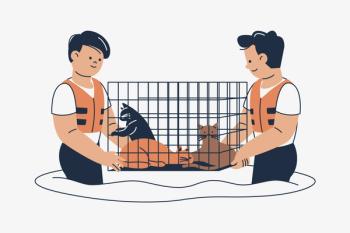
ASPCA veterinarian suspended without pay after clarifying comments on NYC carriage horse death
The Teamsters are among those calling for the reinstatement of Dr. Pamela Corey.
New York, N.Y. — The Teamsters Union came to the defense of a veterinarian who was suspended by ASPCA after revising her statement about the death of a carriage horse.
Dr. Pamela Corey, director of equine veterinary services for the American Society for the Prevention of Cruelty to Animals (ASPCA) Humane Law Enforcement Department, was suspended without pay after clarifying comments she made about the horse’s cause of death.
Today’s press conference by members of Teamsters Local 553, Joint Council 16 and the Horse and Carriage Association of New York City blasted ASPCA for “lying to the media and public” and demanded Corey’s reinstatement.
Corey’s husband Mike Larsson told DVM Newsmagazine that Corey is not granting media interviews at this time.
Bret Hopman, manager of media and communications for ASPCA, says the organization won’t comment on personnel matters but is “perplexed” by Corey’s revised statement.
The flap started on Oct. 31 after Corey and ASPCA drafted a comment about the death of this carriage horse named Charlie.
In its Oct. 31 statement, ASPCA reported that after the 15-year-old draft horse died heading to Central Park on Oct. 23, Corey determined it was not healthy enough for a career in an urban carriage business.
“We are very concerned that Charlie was forced to work in spite of painful maladies, and these particular health issues can be difficult to diagnose because draft horses are by nature a stoic breed, not displaying signs of pain until they are severe,” Corey said in the original statement.
ASPCA says it is still awaiting final results of a confirmatory necropsy, but stated Oct. 31 that a gross necropsy report indicates the horse was “suffering from pain due to pronounced chronic ulceration of the stomach and a fractured tooth.”
The association said on Oct. 31 that the official cause of death is still open and would likely be inconclusive, pending microscopic analysis of the tissues.
But on Nov. 3, Corey issued a correction to the original ASPCA statement to the New York City Department of Health and Mental Hygiene, stating gastric ulcers are a common finding in working horses but there was no evidence Charlie was experiencing any pain.
“It was my opinion that a horse with such gastric ulcers would likely have been experiencing pain, but if Charlie had ‘been forced to work with painful maladies,’ his owner and driver would have been subject to charges of animal cruelty,” Corey writes in her corrected statement.
“The wording of this statement implies that the carriage driver or other stakeholder was aware of the condition. There is no evidence of cruelty or neglect in this case, based on this preliminary necropsy report.”
Corey points out that Charlie was a recently acquired horse and had passed all his veterinary exams, showing no signs of poor health.
Two more carriage horses have suffered injuries since Charlie’s death, adding fuel to animal welfare groups’ cries to ban carriages in New York City.
But Stephen Malone, a spokesperson for the Horse and Carriage Association of New York City, says Corey’s retraction demonstrates that, overall, the horses are fit to work and allegations of cruelty are “completely unfounded.”
“Moreover, the revelation in a New York Times article that the ASPCA ‘pressured’ Corey to issue a misleading report on Charlie’s death raises many grave concerns.
“The ASPCA, as a private agency which has a stated goal of banning the carriage business in New York City, can enforce local administrative code, city, and state laws as pertain to our industry, with no apparent oversight,” Malone says. “In addition to this long-standing, blatant conflict of interest, the possible deliberate obfuscation of the facts suggested by Dr. Corey’s statement is extremely troubling to us.”
Corey joined ASPCA in 2008 after spending a decade in a group ambulatory equine practice.
The American Association of Equine Practitioners (AAEP) says it is not against the use of carriage horses, but notes that horses working in urban environments require special considerations for their health and welfare.
“The veterinarian is the most qualified individual to manage the health care needs of the horse,” AAEP says. “The owners and caregivers of horses working in urban settings should have a relationship with a veterinarian who can respond appropriately to all emergencies, including those in which humane euthanasia is required.”
Newsletter
From exam room tips to practice management insights, get trusted veterinary news delivered straight to your inbox—subscribe to dvm360.





